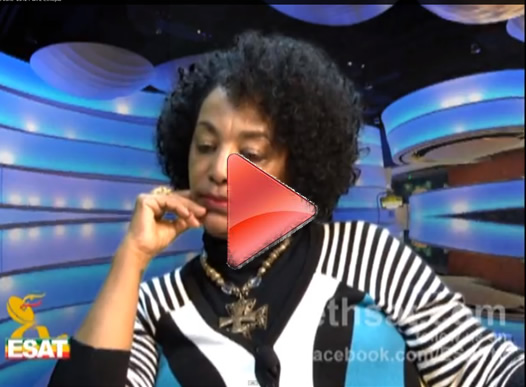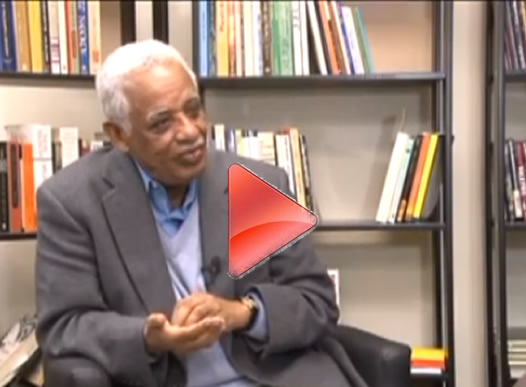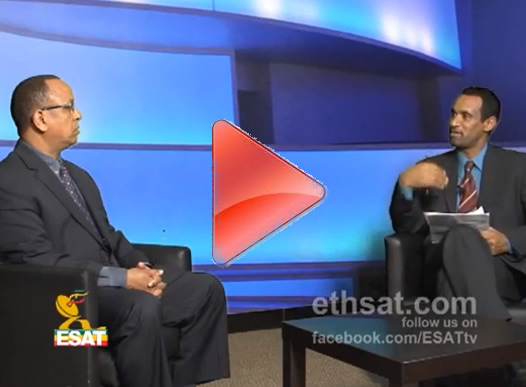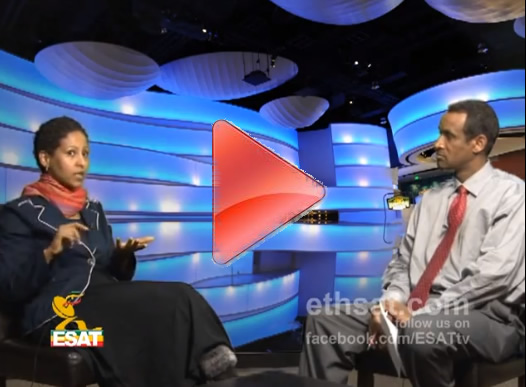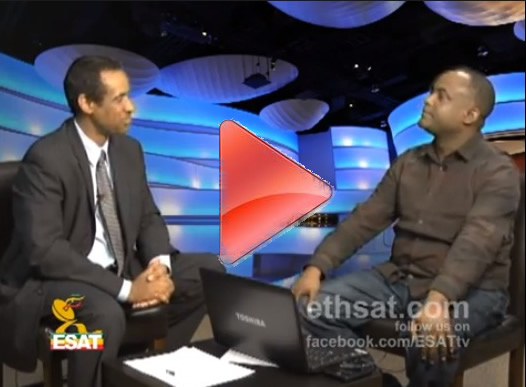Today’s Headline
Is It about Democracy, Really?
The Ethiopian Government is hailing the recent elections as one of the most democratic elections ever held in Africa. In contrast to the most popular headlines of both electronic and print media outlets of the government, election observers of the EU are condemning some irregularities that they saw in the elections process and emphasising the fact that the running track was not level for the opposition.
Although the Election Observer Mission of the EU recognised some good efforts exerted by the National Electoral Board of Ethiopia (NEBE), the pitfalls of the first round reports seem to outweigh the praise. Consequently, the Ethiopian Government is strongly emphasising and warning both international allies and domestic opposition groups to unarguably accept the results of the elections.
The ruling party has installed a democratic government that can be replaced or removed from power based on peoples’ desires and votes, it is consistently declaring. Not forgetting that the Ethiopian Peoples’ Revolutionary Democratic Front (EPRDF) has been in power for the past 19 years, it would be somewhat unproven to say publicly that there exists such a democratic system where the voices of people are reflected in the established administrative structures and government.
More than 100 of the 183 countries in the world have governments that are democratic, they claim. Some of these countries are what Farred Zakaria, the renowned international section editor of Newsweek and a prominent political commentator, once commented about.
“Around the world, democratically elected regimes are routinely ignoring limits on their power and depriving citizens of basic freedoms,” Zakaria said.
Indeed, the number of countries which do not have limitations on the powers of their governments is growing from time to time. There are rights that should not be trespassed no matter what kind of government is in power. More than 90pc of African countries hold regular and timely elections which are affirmed as free and fair. But the human rights condition and rules of the law are repeatedly compromised in these countries.
Creating democracy is much more difficult than organising and holding elections. Elections can be held in a very peaceful and democratic manner. In places like Iraq, they, too, have elections. But the government that followed the elections is not as democratic as it was supposed to be. Political minorities (those that did not have the minimum required votes to establish a government) in Iraq are claiming abridged rights by the majority in power.
Liberal democracy is an ideology promoting the pillars of the rights of citizens and supremacy of the rule of law. These are the most important kinds of attributes that Third World democracies lack.
The Ethiopian Government has been criticised by different international and domestic civic organisations for various poor human rights situations and for the detention of political activists that are believed to have created massive opposition to it. It is trying to repress possible resistance and diversions from its own self claimed “developmental state” and “revolutionary democracy” ideologies. Elections, by any standard, should not be taken as a reference for the existence of democracy, unless the constitutional rights and obligations are exercised by the citizens of that country.
Elections are only minor manifestations of democracy, as they can be easily rigged by ruling parties and be presented as democratic to the international community. Elections can give legitimacy to dictators. Democratic elections do not imply peace, rule of law, freedom of assembly, and freedom of speech and press. Rather, the pre and postelection processes should give clearer pictures for the respect of democratic constitutional rights.
In a multiethnic and multilingual country like Ethiopia, it will be mandatory to meaningfully and carefully represent different stakeholders in the country’s political, economic, and social decision-making processes. Undoubtedly, an ethnic group in power works best for the interests of its own ethnic background more than for other groups in the country. Therefore, the kind of ethnic federalism that exists in Ethiopia should be implemented with much vigilance and caution, as it is highly susceptible to mass dissatisfaction.
Without the participation of civic and independent organisations in the election process, the electorate is exposed to decisions based on mere ethnic affiliation or economic advantage from the party in power. People also expect to be punished if they do not vote for the ruling party. This seems to be the obvious reason for the landslide victory of the EPRDF in the May 2010 elections.
The Government of Ethiopia has to engage the opposition parties on administrative issues and decision-making so that the interests of different groups are very well respected. In a rally organised by the EPRDF to celebrate its alleged win of the elections and condemn the reports of Human Rights Watch (HRW), Prime Minister Meles Zenawi promised to work together with those opposition parties that are ready to adopt peaceful struggle and maintain working relations with the government.
The history of the ruling party shows that it is almost incapable to of such types of relationships with opposition parties, unless they are ready to be dominated and lose their voices in the EPRDF camp. Meles invited the opposition in public, just for public consumption and to avoid heavy criticism of the establishment for a one party dominant system, it is believed.
There are four critical areas in which governments of the Ethiopian type use to create a seemingly democratic, but authoritarian administration. These are elections, the legislature, the judiciary, and the media. All of these important attributes of the democratisation process are seriously threatened and compromised by the incumbent in Ethiopia.
The last two elections were seriously doubted both by opposition parties and international election observers such as the EU. Following flawed 2005 elections and the subsequent measures taken by opposition parties to boycott Parliament, the legislature is under complete control by the EPRDF. The judiciary is another instrument through which the government weakens opposition parties, as leader of the most popular opposition party, Unity for Democracy and Justice (UDJ), Birtukan Mideksa, is still in jail.
The print and electronic media of the country is under heavy surveillance and suppression by the new revised press law. All of the above actions of the government are crippling the build-up of the democratisation process in Ethiopia. The 2010 elections were held under the above circumstances.
Illiberal democracy, as explained by Zakaria, is a system in which the elected majority party systematically abuses human rights and compromises the rights of minorities. Therefore, the Ethiopian Government has to create a medium through which all parties contribute or have something to say in the administrative, political, and economic structures. The rule of law, right of assembly, freedom of speech and press ought to be respected.
The government has to symmetrically distribute benefits from the fruits of economic growth to different sections of the population. Because of the landslide victory of the government, there is no other way in which these opposition groups can participate in government. Otherwise, differences continue to widen as ethnic hatred enjoys an ample playing field in the political arena. Even if parties end up becoming minorities after elections, unable to establish a government, they should be given a proportional stake and share in power, as they represent group interests and concerns.
Bisrat Teshome is a postgraduate student of regional and local development studies at Addis Abeba University. He can be reached through bisratme@gmail.com.








